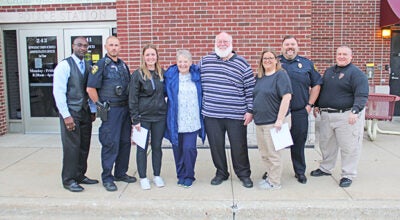SMC showing human trafficking documentary
Published 10:19 am Tuesday, January 24, 2017
Southwestern Michigan College is hosting a showing of “Break the Chain,” a feature-length Michigan human trafficking documentary, at 12:40 p.m. Wednesday, Feb. 1, at the Dale A. Lyons Building theater.
The presentation is free and open to the public.
Feb. 1 is National Freedom Day honoring President Abraham Lincoln in 1865 signing the joint House/Senate resolution that upon ratification by the states became the 13th Amendment to the Constitution outlawing slavery.
The second documentary produced and directed by Michigan State University graduates Laura E. Swanson and Kirk Mason, “Break the Chain” addresses the often “hidden-in-plain-sight” aspect of the $150-billion-a-year human trafficking business.
The film chronicles two survivors to provide a detailed look at how trafficking goes unnoticed by the general public.
Kwami, a child survivor of labor trafficking, was enslaved for almost five years with three other children in Ypsilanti before anyone noticed.
Debbie, a sex-trafficking survivor, takes viewers through her experience of being sold for sex around the Detroit area between ages 13 and 18.
Accompanying survivors’ stories are nearly 20 interviews with researchers, senators, nonprofit organizations, legal service agencies, law enforcement officers and artists actively working to raise awareness of this global issue.
The film teaches that what is seen in the media about human trafficking is one small sensationalized form of something that occurs anywhere and everywhere, including southwest Michigan along the I-94 corridor between Chicago and Detroit.
Viewers will learn how we are all connected and that we have the power to choose what we support and, ultimately, how to break the chain.
SMC Criminal Justice Director Donald Ricker serves on the board of the Southwest Michigan Human Task Force, which is arranging the presentation.
Cathy Knauf, who founded the task force in 2012, spoke to SMC’s Criminal Justice Club on April 12, 2014.
Knauf said the second-largest criminal enterprise enslaves more people today than at any other time in human history and grows faster because, unlike drugs, people can be sold repeatedly.
According to one ranking, Michigan finished No. 2 for its sex trade behind only Nevada.
Berrien County stood 15th among the 83 counties, prompting Attorney General Bill Schuette to visit in July 2013 after formation of the Michigan Commission on Human Trafficking.






